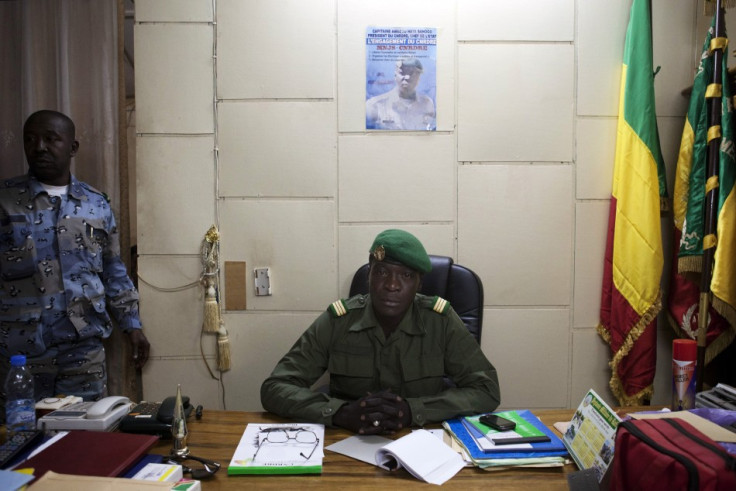Rights groups urge authorities in Mali to ensure military coup leader faces "fair and just trial"
Amadou Haya Sanogo in court along with 17 co-defendants for arbitrarily executing dozens of soldiers.

Rights groups have urged Mali's judicial authorities to ensure a "fair and just trial" as Amadou Haya Sanogo, leader of the March 2012 military coup in Mali, is expected to appear in court along with 17 co-defendants for arbitrarily executing dozens of soldiers.
In March 2012, Captain Haya Sanogo and disgruntled officials from the 7,000-strong army who staged mutiny and overthrew President Amadou Toumani Touré, declared themselves the National Committee for the Restoration of Democracy and the State (CNRDR).
Less than a month later, a counter-coup staged by the"Bérets rouges", a parachutist unit of the army, was violently repressed. At least 21 Bérets Rouges were arbitrarily executed near the CNRDR's headquarters and buried in a communal grave, according to a later investigation.
International Federation for Human Rights (FIDH) and Malian human rights non-governmental organisation AMDH, which are civil parties to the case, are accompanying 23 of the victims' close relatives and family connections.
#Mali: The mass grave of the "Missing Red Berets†has been discovered yesterday. Persons charged should now be sued for murder. #Sanogo
— FIDH (@fidh_en) December 4, 2013
Both organisations welcomed the trial, which FIDH said: "Represents a significant step in the fight against impunity both for the gravest crimes committed in the north and south of Mali since 2012, as well as for Africa as a whole", but have urged the judicial authorities to ensure a fair and just trial.
"The victims and our organisations want to see their position and interests taken into account and also expect the trial to be conducted fairly and in a transparent way, with the aim of delivering justice for the victims," Moctar Mariko, lawyer representing victims in the case and president of AMDH, said in a statement ahead of the 30 November trial in Sikasso.
The organisations demand the government take necessary measures to ensure the trial is conducted lawfully, and that security of victims, their lawyers, and representatives of rights NGO attending the trial is guaranteed.
Since 2013, individuals claiming to support the coup leader have "exerted pressure on or threatened" the victims' families to coerce them into dropping charges, FIDH claims.
"A trial of this kind is an opportunity to bring out the truth over a difficult period in Mali's recent history, during which – while the country was being attacked from the North – a handful of officers unhesitatingly executed 21 soldiers in cold blood in an effort to hold on to power acquired a few days earlier in a military coup. Mali honours itself by rendering justice and giving the defendants a right which they denied their victims," Clémence Bectarte, co-ordinator of the FIDH Litigation Action Group and lawyer representing the victims in the trial, added.
© Copyright IBTimes 2025. All rights reserved.






















